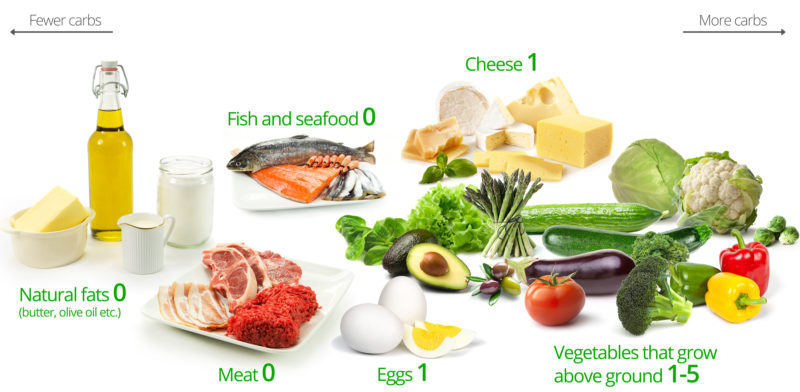
With winter well and truly behind us and summer just around the corner, many are stocking up and signing up to weight management solutions from diet shakes to pills and programs.
Generally, the word ‘diet’ does not invoke warm fuzzy feelings from those of us who love our food as we dread the imminent starvation and calorie restriction that lays ahead. Anyone who’s been on a diet knows that getting into a new eating program is easy – it’s maintaining those habits and seeing sustainable results over time that’s difficult.
The addictive nature of highly processed carb-loaded foods containing excess fat and sugar doesn’t help as we often reach for these comfort foods that are so easily accessible in times of stress. On top of that, the plethora of mixed messages from weight loss companies marketing their products giving contradicting advice often leaves us confused and fed up.
Enter ketosis. Thankfully, this new buzzword making its way onto the health and wellness scene has many participants feeling satiated and satisfied – and they get to keep their sanity too. Say goodbye to the tedious calorie counting and rationing morsels of food and hello to a new way of healthful eating.
Proven benefits of the keto diet
The keto diet involves eating foods that are high in natural fats and moderate in protein while restricting carbohydrate intake. Similar to the Atkins Diet that was introduced in the 70’s, ketosis takes place when glucose from carbohydrate foods such as grains and fruit is drastically reduced, forcing the body to find and burn an alternative fuel source – fat.
Dr Axe, doctor of natural medicine and widely popular nutritionist explains, “In the absence of glucose, which is normally used by cells as a quick source of energy, the body starts to burn fat and produces ketones instead. Once ketone levels in the blood rise to a certain point, you enter into a state of ketosis, resulting in quick and consistent weight loss until you reach a healthy, stable body weight.”

There has been further research over the last decade providing evidence for the therapeutic benefits of the ketogenic diet suggesting it can limit or even reduce the need for medical intervention in conditions such as diabetes, polycystic ovary syndrome, acne, neurological diseases, cancer and cardiovascular disease.
“Even if you don’t have much weight to lose, entering into a state of ketosis can be helpful for improved energy levels, mental capabilities and mood stabilisation,” Dr Axe suggests.
With our schedules packed to the rim and more responsibilities zapping our energy reserves, this diet may just be the way to improve our overall well-being and reduce the negative effects of a busy and stressful lifestyle.
How to get started on the keto diet
Before getting started on any new weight management program it’s always recommended that you consult with your GP or a registered dietician. This is particularly important if you have any pre-existing medical conditions such as diabetes and high blood pressure, take any medications or are pregnant and breastfeeding.
Ketosis can be achieved by limiting your carb intake to under 50 grams a day. Limiting your carb intake to 30–50 grams per day lowers blood sugar and insulin levels, leading to the release of stored fatty acids that your liver converts into ketones.
Avoid sugar and starch such as bread, pasta, rice and potatoes. Basically, the fewer carbs you eat, the more effective. For a complete list of foods to eat and not to eat as well as recipes, you can find information by medical doctor, Dr Andreas Eenfeldt.
“Follow the guidelines for a strict low-carb diet and remember, it’s supposed to be high in fat, not high in protein,” suggests Andreas.

How long will it take to see results?
The quicker you get into a ketogenic state, the sooner you will start to see results. Every individual is different, but generally, ketosis takes about 2-10 days. Signs of ketosis include a dry mouth, increased thirst and urination, smelly acetone breath, reduced hunger and increased energy.
Everyone has a unique metabolism, but generally, if you are consuming more than 50 grams of carbohydrate a day you won’t reach ketosis so it’s important to maintain your carbohydrate restriction.
For those who are keen for an accurate measurement, ketones can be tested using urine strips, a breath analyser or through a blood sample.
Things to consider before starting the keto diet
Like any new eating program, there are considerations to be made. If only weight loss was as easy as taking a pill or downing a shake as these savvy marketers have lead us to believe! Implementing the keto diet requires considerable effort and a change in lifestyle. While you probably won’t be starving due to the high fat intake, there are other areas that may require a closer look.
Ben Greenfield, a personal trainer, fitness coach and nutritionist explains, “The social limitations of following dietary restrictions and needful self-control in social situations such as having dinner at an Italian restaurant can be nearly exhausting.”
Ben also suggests that low-carb diets may increase your triglyceride levels or affect your thyroid function, which is why it pays to regularly consult with your doctor.
Worth noting is that there is no conclusive evidence indicating that keto diets are damaging to the body. In fact, the opposite has been proven through numerous studies showing improved health and cognitive functioning.
The key, however, in achieving and maintaining positive weight loss outcomes all boils down to sticking to the program. This diet will work if you are prepared to follow it for a long period of time. Considering the wealth of benefits not only in losing weight but also mental and physical performance, the keto diet could be your ticket into an overall better way of living.






















